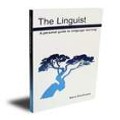When I lived in Hong Kong I was not in a Mandarin speaking environment, but I listened to and read a limited number of texts: history and cultural books, modern literature, and tapes of comic dialogues. These became like old friends and provided the core of the vocabulary and phrasing that I needed to use in my communication.
Communicating with this imaginary world was easier than communicating with the real world, since it was readily available and under my control. This friendly world of my own exploration was a great source of strength in preparation for the real test of communicating with native speakers.
In 1512, Niccolo Machiavelli was briefly imprisoned and tortured by the Medici family, then withdrew to a simple country house outside Florence. During the day he talked and played cards with the local people, but at night he changed into formal clothes and withdrew into his study. There he communicated with the ancient historians through books, and wrote one of the classics of Western literature, The Prince. Machiavelli is an example of how we can communicate with a culture through reading or listening, even if we do not have daily personal contact with the people.
While living in Vancouver well past the age of forty, I was able to make great advances on the learning I had begun in German, Swedish and Italian. I had some previous exposure, but certainly did not have fluency or confidence. For each language I had to commit myself to a concentrated period of listening to comprehensible audio material and reading texts with vocabulary lists.
At my home, I have at least fifty readers for German, Italian, Spanish, and Swedish. I purchased these readers because they all have vocabulary lists so that I could avoid using dictionaries. Unfortunately much of the content of these readers was uninteresting to me, but it was the only content that I could find.
What I was only able to do through great effort is made easier and more effective today. Using modern technology, vast amounts of content can be turned into accessible learning material. You can seek out content that is of interest to you, and learn the language from it. The independent learner is more independent than ever before.

